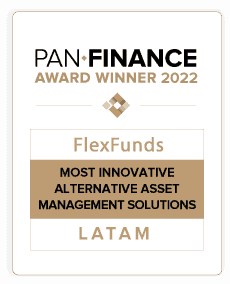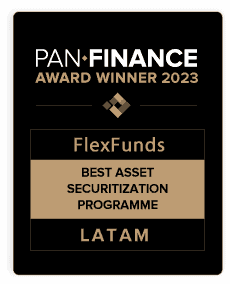The following financial terms will help you understand the investment fund environment
The financial environment is replete with specific concepts, and abbreviations are only understood by those familiar with it. However, a few, in particular, are more general and should be understood by end investors, especially those associated with investment funds.
Download our infographic
Here is a glossary of the 10 most important terms to keep in mind:
Investment fund
In simple words, an investment fund or mutual fund is a financial vehicle that pools the capital of various participants to be invested professionally by a manager or team of managers based on a series of common objectives and needs.
Hedge fund
On the other hand, a hedge fund is also a financial vehicle for collective investment. In this case, the primary objective is usually to obtain positive returns regardless of the general trend of the financial markets, and with fewer restrictions, being able to place the capital in a few assets, in financial derivatives, etc. Usually, this fund aims at large investors rather than retail investors.
As the U.S. Securities and Exchange Commission (SEC) states, “many hedge funds seek to profit in all kinds of markets by using leverage, short-selling and other speculative investment practices that are not often used by mutual funds.”
Exchange-traded fund
In turn, an exchange-traded fund, or ETF, is an investment fund with the particularity of being listed on the secondary market as if it were a stock or bond. This way, investors do not have to subscribe to the capital as in a traditional fund but buy and sell each share with high speed and accessibility.
As Charles Schwab explains, when an investor invests in an ETF, “you get a bundle of assets you can buy and sell during market hours- potentially lowering your risk and exposure, while helping to diversify your portfolio.”
Private equity fund
A private equity fund is nothing more than a type of fund in which you invest in private, unlisted companies to earn a return over the long term based on how the companies in question perform: whether they generate sales or not, whether they make a profit or loss, etc. As with hedge funds, in these cases, they also aim to raise money from wholesale investors.
Real estate fund
As you might guess, a real estate fund is a fund linked to the real estate sector, in which real estate assets, such as houses, apartments, buildings, offices and a long etcetera, are designed, developed, bought, sold and managed. The goal is to earn money by the price appreciation of the properties or their rents.
Securitization
On the other hand, the term asset securitization is very common within the investment funds world. This process, in which FlexFunds, one of the most prestigious providers today, specializes, consists of taking an asset or set of assets, liquid or illiquid, and converting it into exchange-listed products (ETPs) to make the investment strategy more flexible and efficient.
Volatility
Volatility is a very technical and popular concept in finance. It can be defined as the frequency and magnitude of price movements, up or down. The bigger and more frequent the price swings, the more volatile the market is said to be.
According to Forbes magazine, “market volatility is measured by finding the standard deviation of price changes over a period of time.”
Benchmark
Benchmark refers to an index or set of indices that serve as a reference to compare the performance of an investment fund. For example, if the fund is an equity fund, a good benchmark might be the S&P 500 index which aggregates the largest companies in the United States.
Alpha
A fund’s Alpha is a formula used to measure a manager’s performance. In summary, it measures the difference between the return obtained and the expected return with the worst and best performance against the benchmark. If the Alpha is positive, the manager adds value.
Beta
Finally, Beta measures the risk of an investment based on its performance and that of the market. In the fund space, it details the sensitivity to market movements. Another way of looking at the formula is the correlation between the fund and the benchmark.
Knowing the 10 most important investment fund terms allows you to make better financial decisions based on your objectives and needs.
Sources:
- https://www.investor.gov/introduction-investing/investing-basics/glossary/hedge-funds
- https://www.forbes.com/advisor/investing/what-is-volatility/







